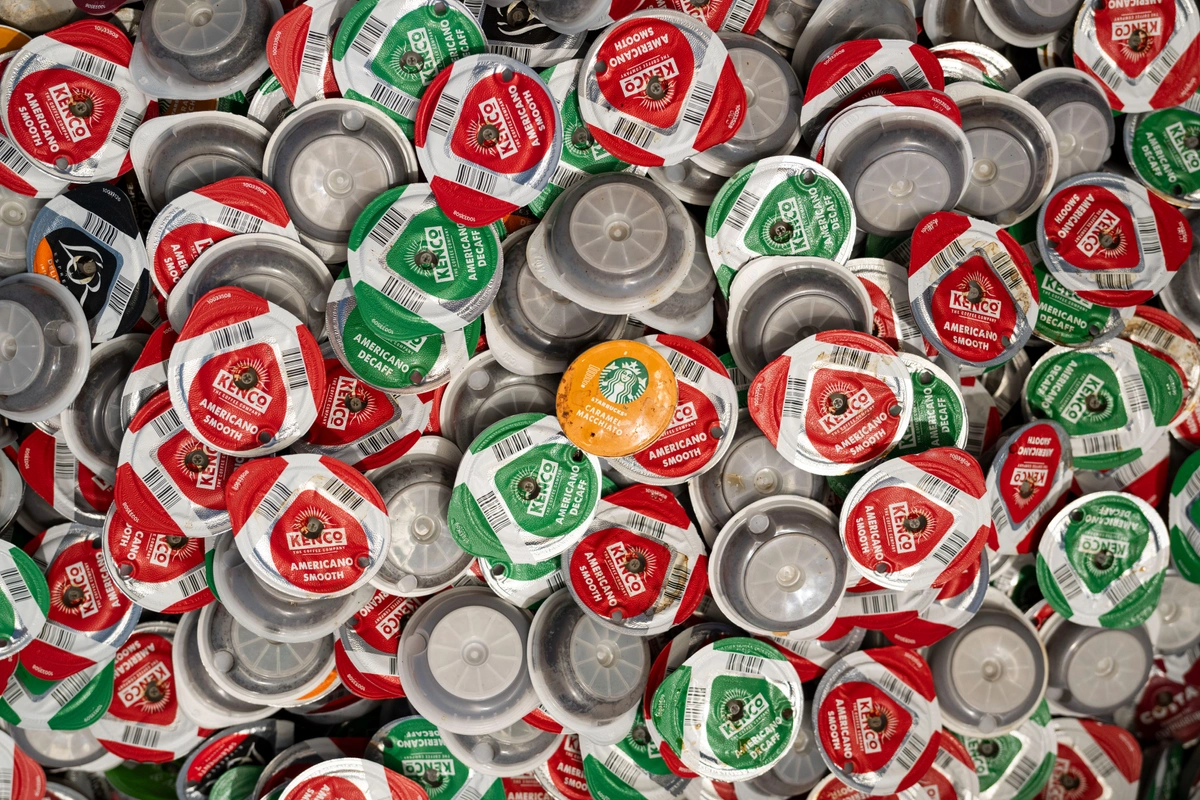In the latest instalment of our guest blog series, we hear from BioteCH4, a business that is an important contributor to Podback’s recycling process. Anaerobic Digestion operator BioteCH4’s Chief Commercial Officer, Lee Dobinson, talks us through how the company recycles the coffee grounds for our used plastic pods.
BioteCH4 is the UK’s leading anaerobic digestion (AD) operator, working closely with the commercial sector and local authorities to deliver bespoke food waste recycling solutions at a group of sites across the UK.
Since 2020, Podback has been a valued partner, trusting us to recycle their used coffee grounds from plastic coffee pods to give them a new lease of life.
The plastic coffee pods collected through Podback are taken to a recycling facility in the East Riding of Yorkshire where the coffee grounds are separated from the plastic and transported just six miles down the road to our Changing Waste facility.
Upon arrival at Changing Waste, the coffee grounds are tipped into the reception hall and mixed with other food waste and liquids. The food waste is stripped of any remaining packaging, blended into a soup, and pumped into holding tanks.
The contents of the holding tanks are tested and balanced to create a consistent feedstock. Once testing is complete, it is transported via a tanker to start the process at R100 Energy, our AD plant which is situated less than half a mile up the road from Changing Waste.
As food waste breaks down in landfills, it releases harmful greenhouse gases into the environment, however, when put through the AD process, these gases are captured, reducing the strain on the environment, and allowing us to use the gases for energy. The process starts with hydrolysis, where the most complex materials, such as proteins and carbohydrates break down, this is followed by the pasteurisation process, where the waste is heated to 70°C for a minimum of an hour, removing any pathogens that may be present. Finally, the hydrolysed soup is pumped into the digester tanks, where the food waste breaks down into its final product, biogas and digestate, a nutrient-rich liquid perfect for fertilising crops.
In some cases, a fraction of our biogas is then put through our Combined Heat and Power engines (CHPs) which transform the gas into electricity. This electricity is used to power our process and the neighbouring businesses across the group. The remaining biogas is upgraded before it is injected into the National Grid and used to power homes across the country.
The digestate is stored in large lagoons, ready for distribution to local farmers to spread on their crops. A huge benefit of digestate is that it is organic, making it a sustainable and cost-saving alternative to chemical fertilisers.
Anaerobic Digestion gives a new life to the used coffee grounds that have been extracted from plastic coffee pods collected by Podback.
In 2023, our Changing Waste and R100 Energy sites collectively processed 499 tonnes of coffee grounds from Podback, which equates to 298MWh of energy generated. This could power over 4,500 coffee pod machines a year! [i]
Our partnership with Podback is a clear example of transforming food waste for good and helps the scheme in its quest to ensure every element of the coffee pod can be recycled after they have been enjoyed.
Through Podback, used aluminium and plastic pods are reprocessed in the UK. Recycled aluminium pods are used in the manufacture of beverage cans and car components, and plastic coffee pods are recycled into durable plastic products including furniture and industrial packaging.
